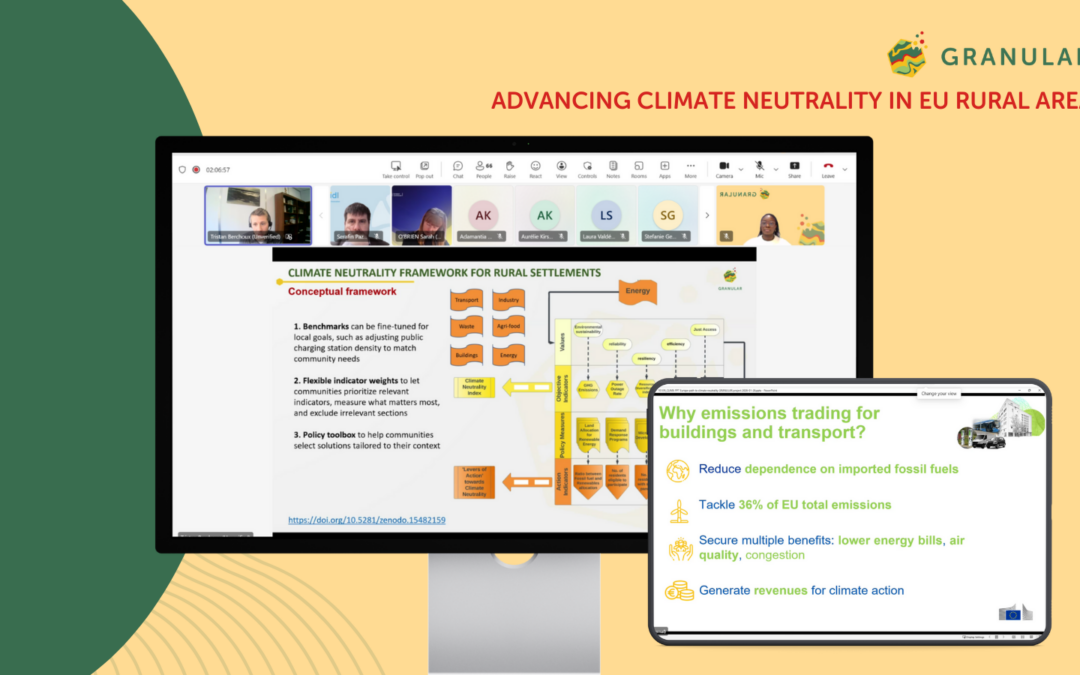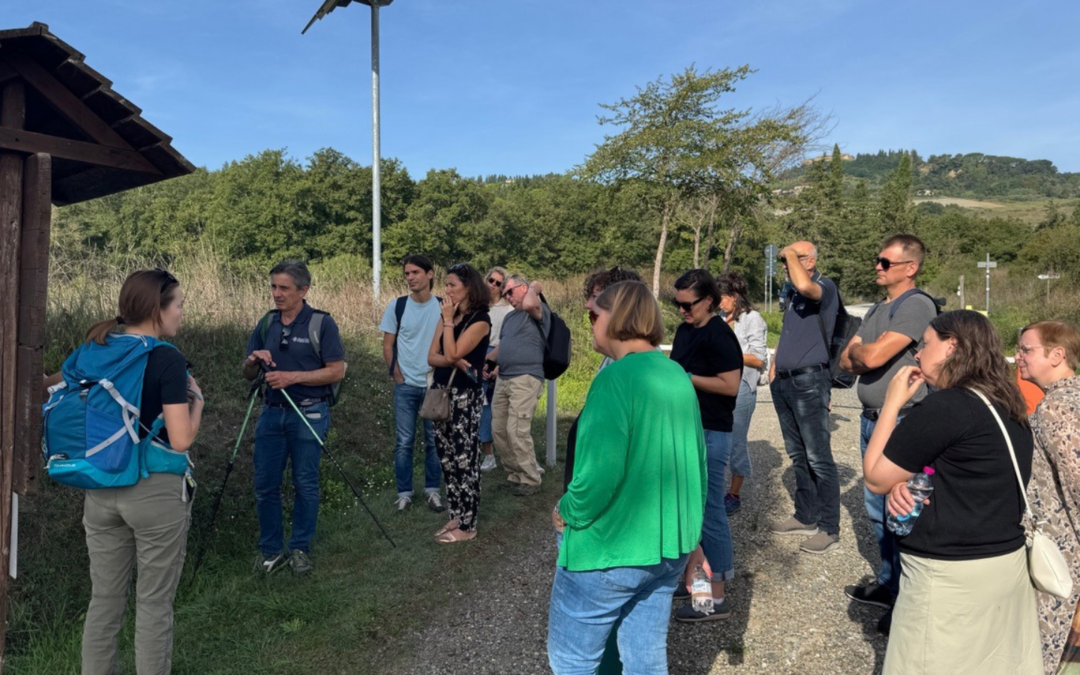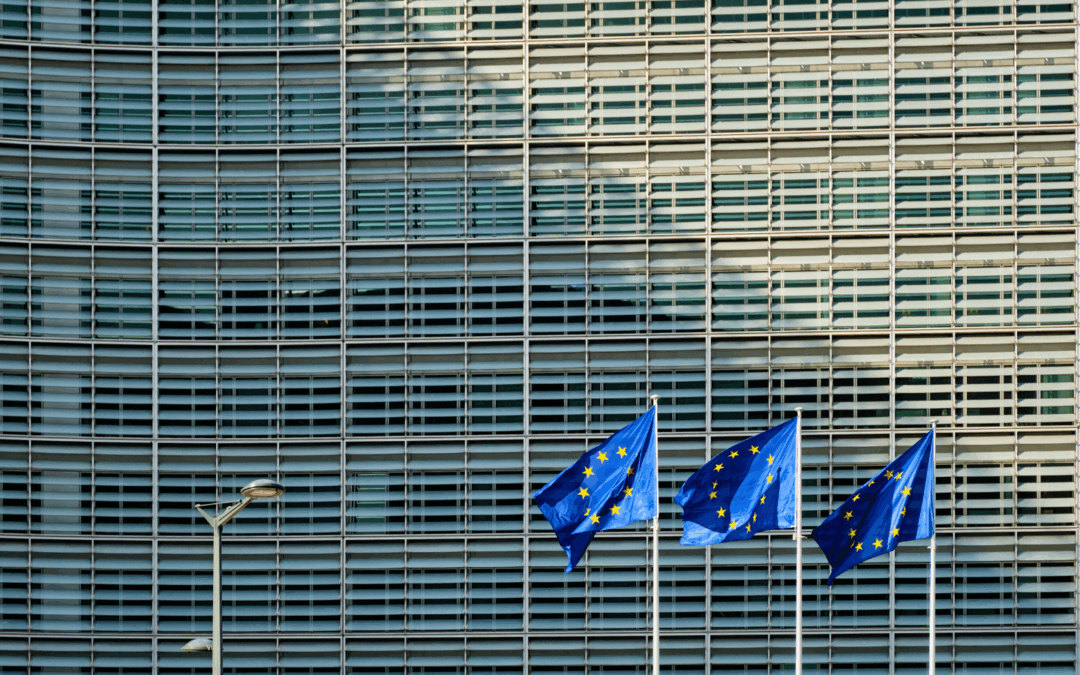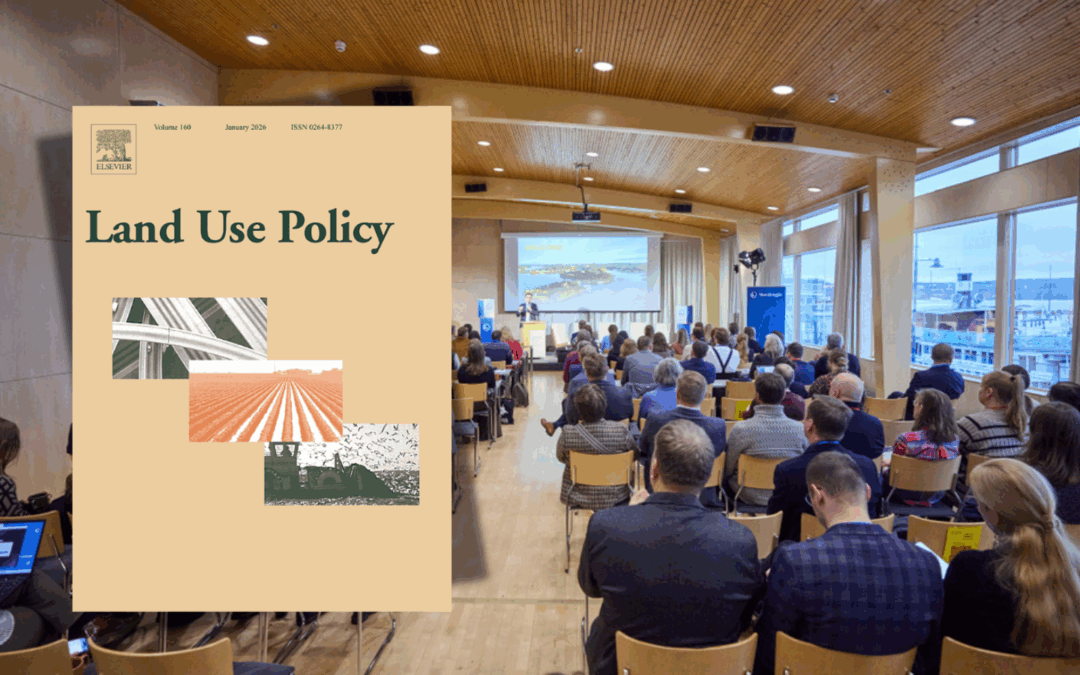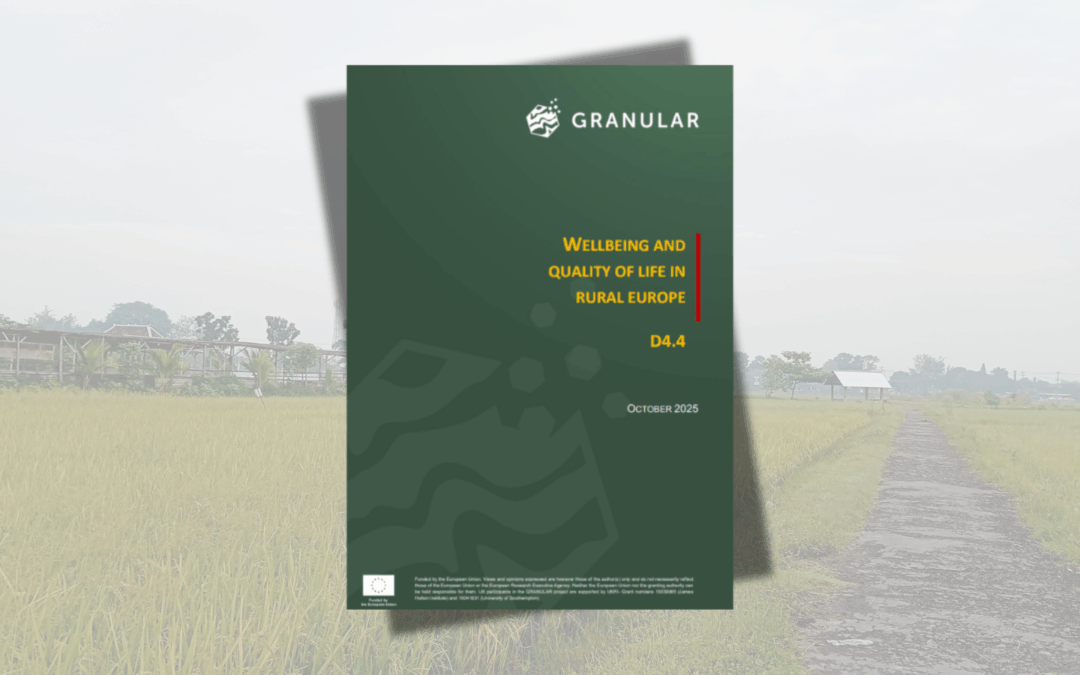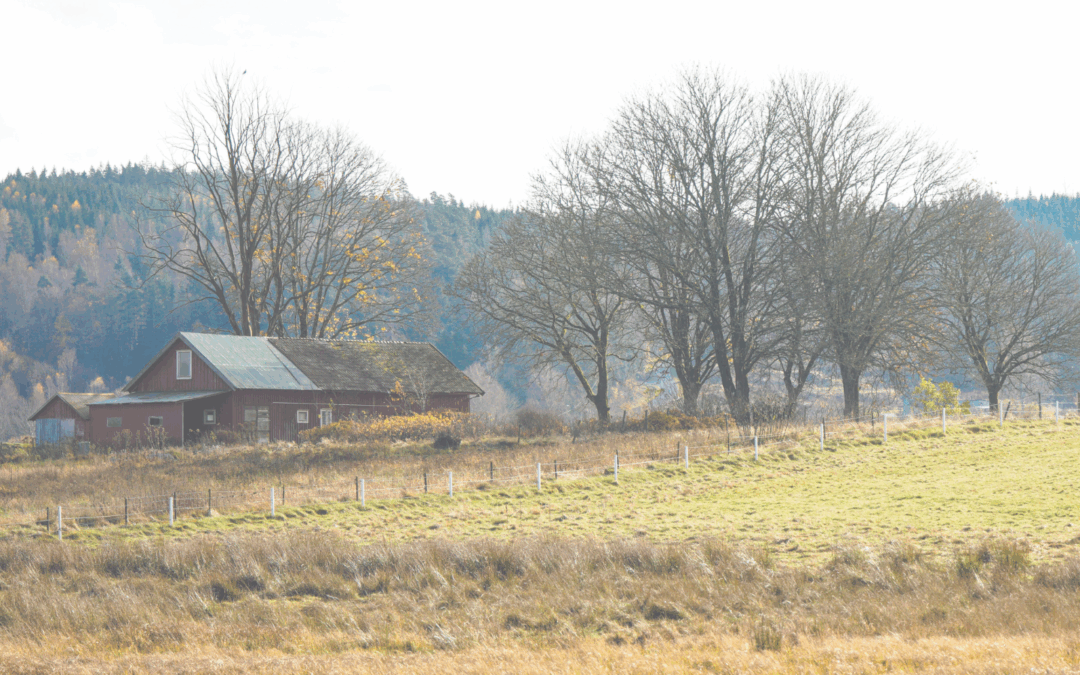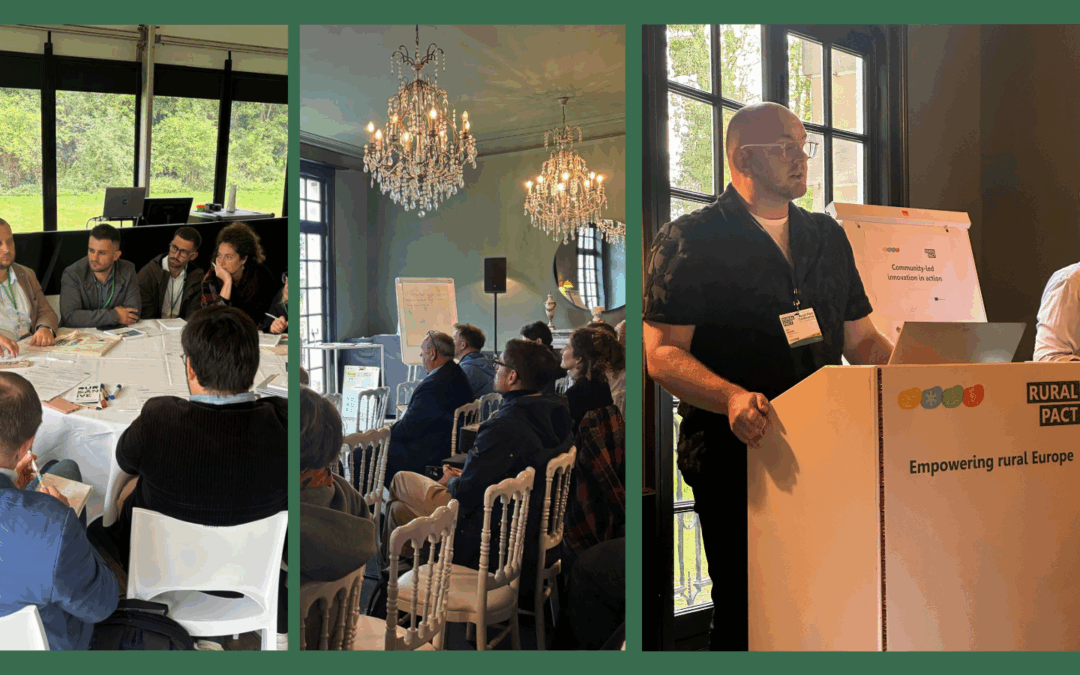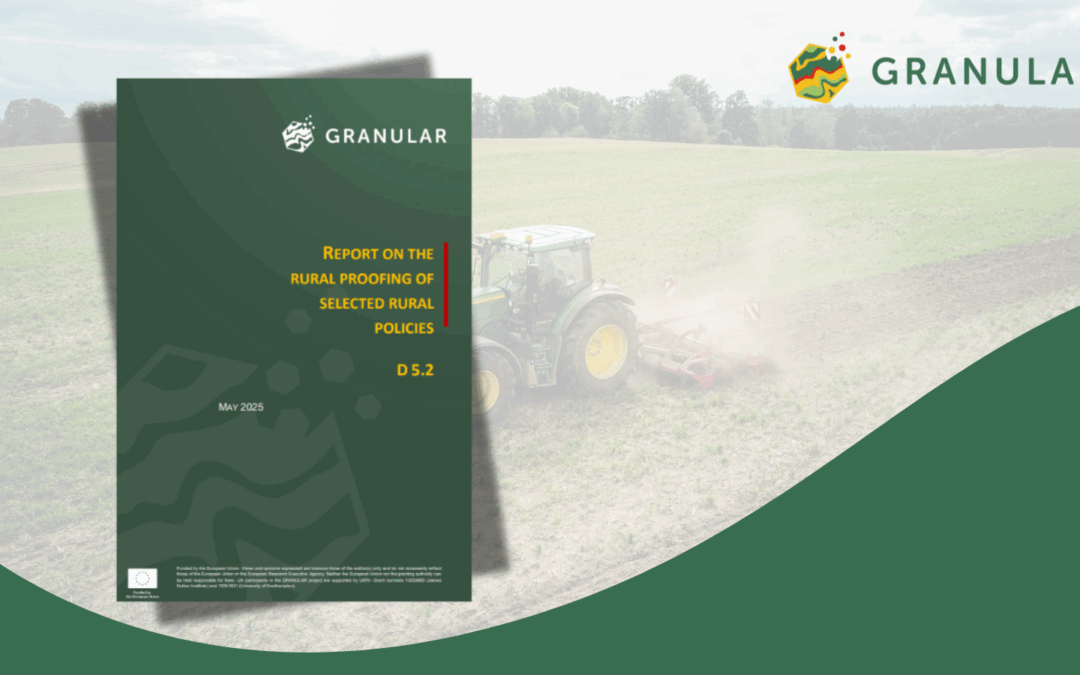Earlier this summer, the heart of European rural innovation beat strongly at the 64th European Regional Science Association (ERSA) Congress in Athens. GRANULAR partners hosted a special session on “Taking into Account Diversity to Shape just Rural Futures: Novel Indicators for Resilient and Inclusive Development”, bringing together experts to share essential frameworks and findings designed to navigate the complexity and multiplicity of modern rural challenges.
Policy Integration and Diversity
A core theme of the session was ensuring policies truly serve diverse rural needs. Giulia Martino (Ecorys) presented GRANULAR’s structured methodology for Rural Proofing, an approach mandated by the EU’s Long-Term Vision for Rural Areas (LTVRA) to minimise negative policy consequences and enhance positive impacts in rural areas. This methodology uses the GRANULAR Rural Compass, a framework of 27 elements, to systematically assess challenges and opportunities aligned with the four LTVRA pillars (Stronger, Connected, Prosperous, Resilient Rural Areas). Early testing in Living and Replication Labs, such as in Finland and the United Kingdom, demonstrated the tool’s adaptability across different governance levels, successfully bridging local realities with national policy frameworks to promote multi-level governance.
Dr. Henk Oostindie (Wageningen University) unveiled the prototype Rural Diversity Compass, an analytical tool built on the theoretical blocks of multi-spatiality and multifunctionality. This compass distinguishes four core rural functionalities, further characterised by 24 components, aimed at capturing the multiplicity of rural differentiation drivers and place-specific interaction patterns. This work seeks to complement existing EU rural-urban classifications by focusing on functionality interaction patterns, serving as guidance for multi-layered rural mapping.
Rural Resilience Through a Gender and Climate Lens
Focusing on social fairness, Dr. Debora Birgier (Nordregio) detailed research examining Rural Socio-Economic Resilience from a Gender Perspective. Her findings highlight that women in rural areas face significant barriers, including limited resources, fewer job opportunities, and heavy burdens of unpaid care, which undermine community resilience. The study notes that gender gaps in employment persist, with particular employment barriers facing rural women in Southern and Eastern Europe, while part-time work often reinforces traditional roles in Nordic and Continental countries. The conclusion stresses the necessity of gender-sensitive policies, advocating for key investments in childcare and flexible work arrangements.
Finally, Dr. Tristan Berchoux (GRANULAR Coordinator from CIHEAM-IAMM) presented two frameworks for sustainable transitions. He introduced an analytical framework for assessing Local Food Systems by integrating elements across production, supply chains, consumption, and spatial organisation. This framework uses both quantitative (cluster analysis) and qualitative (stakeholder interviews) methods to clarify the diversity of food systems, enabling the development of decentralised policies for better food access and security. Additionally, he presented a modular, indicator-based Climate neutrality framework for rural settlements. This decision-support tool, tailored for unique rural conditions (like dispersed populations), addresses six key domains: energy, transportation, agri-food, waste, industry, and buildings, and integrates indicators with a curated toolbox of 104 policy measures to guide local actions toward EU climate goals.

